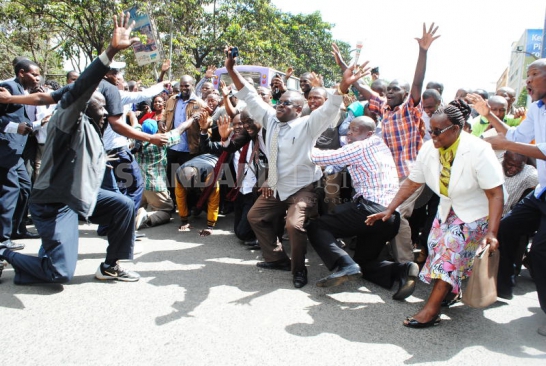×
The Standard e-Paper
Smart Minds Choose Us

When news that the government had been ordered to increase teacher’s pay by 50 to 60 per cent emerged, President Uhuru Kenyatta was holding his routine meetings at State House.
The Ministries of Labour and Education officials were agonising when and how to break the news to the President given the huge budgetary implications the ruling would impose on his administration.